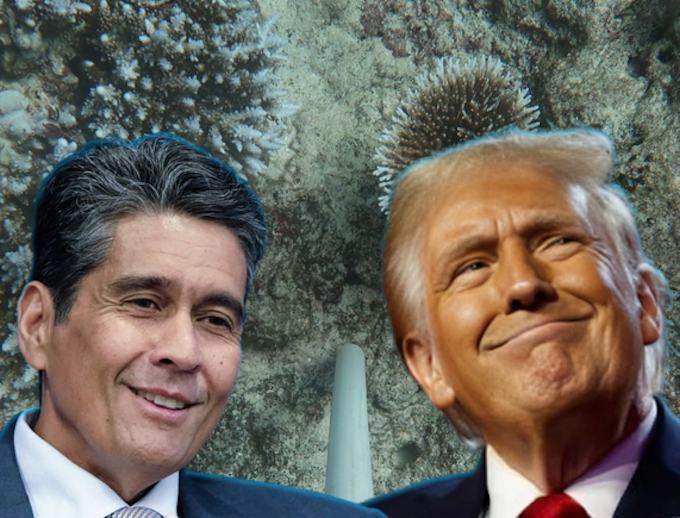
By Lydia Lewis, RNZ Pacific journalist
Palau’s president says the US order to fast-track deep sea mining is not a good idea.
Deep sea mining frontrunner The Metals Company (TMC) has since confirmed it will not apply for a mining licence through the International Seabed Authority (ISA), instead opting to apply through US regulations.
Surangel Whipps Jr. said the high seas belongs to the entire world so everyone must exercise caution.
“We should be responsible, and what we’ve asked for is a moratorium, or a temporary pause . . . until you have the right information to make the most important informed decision,” Whipps told RNZ Pacific.
Whipps said it’s important for those with concerns to have an opportunity to speak to US President Donald Trump.
“Because it’s about partnership. And I think a lot of times it’s the lack of information and lack of sharing information.
“It’s our job now as the Pacific to stand up and say, this direction could be detrimental to all of us that depend on the Pacific ocean and the ocean and we ask that you act responsibly for humankind and for the Pacific.”
US seabed policy
Trump’s executive order states: “It is the policy of the US to advance United States leadership in seabed mineral development.”
The National Oceanic and Atmospheric Administration (NOAA) was directed to, within 60 days, “expedite the process for reviewing and issuing seabed mineral exploration licenses and commercial recovery permits in areas beyond national jurisdiction under the Deep Seabed Hard Mineral Resources Act”.

It directs the US Science and Environmental Agency to expedite permits for companies to mine the ocean floor in the US and international waters.
The Metals Company has praised the US deep sea mining licensing pathway.
In a press release, its chief executive Gerard Barron made direct reference to Trump’s order, titled “Unleashing America’s Offshore Critical Minerals and Resources”.
He said he was heartened by its call “for a joint assessment of a seabed benefit-sharing mechanism” and was certain that “big ocean states” like Nauru would continue to play a leading role in the deep sea mining industry.
There are divergent views on deep sea exploration and mining in the Pacific, with many nations, civil society groups, and even some governments advocating for a moratorium or outright ban.
Exploration contracts
However, Tonga, Nauru, Kiribati and the Cook Islands have exploration contracts with mining representatives.
Vanuatu’s Climate Minister Ralph Regenvanu told RNZ Pacific in 2023 that Vanuatu’s position is for no deep sea mining at any point.
“We have a lot to think about in the Pacific. We are the region that is spearheading for seabed minerals,” he said.
The Cook Islands has sought China’s expertise in seabed mining through “high-level” discussions on Prime Minister Mark Brown’s February 2025 trip to China.

Whipps said “you have to give [The Metals Company] credit” that they have been able to get in there and convince Donald Trump that this is a good direction to go.
But as the president of a nation with close ties to the US and Taiwan, and the host of the PIF Ocean’s Commissioner, he has concerns.
“We don’t know the impacts to the rest of what we have in the Pacific — which is for us in the Pacific, it’s tuna [which] is our biggest resource,” Whipps said.
“How is that going to impact on the food chain and all of that?
“Because we’re talking about bringing, first of all, impacting the largest carbon sink that we have, which is the oceans, right? So we say our islands are sinking, but now we want to go and do something that helps our islands sink.
“That’s not a good idea.”
This article is republished under a community partnership agreement with RNZ.








































